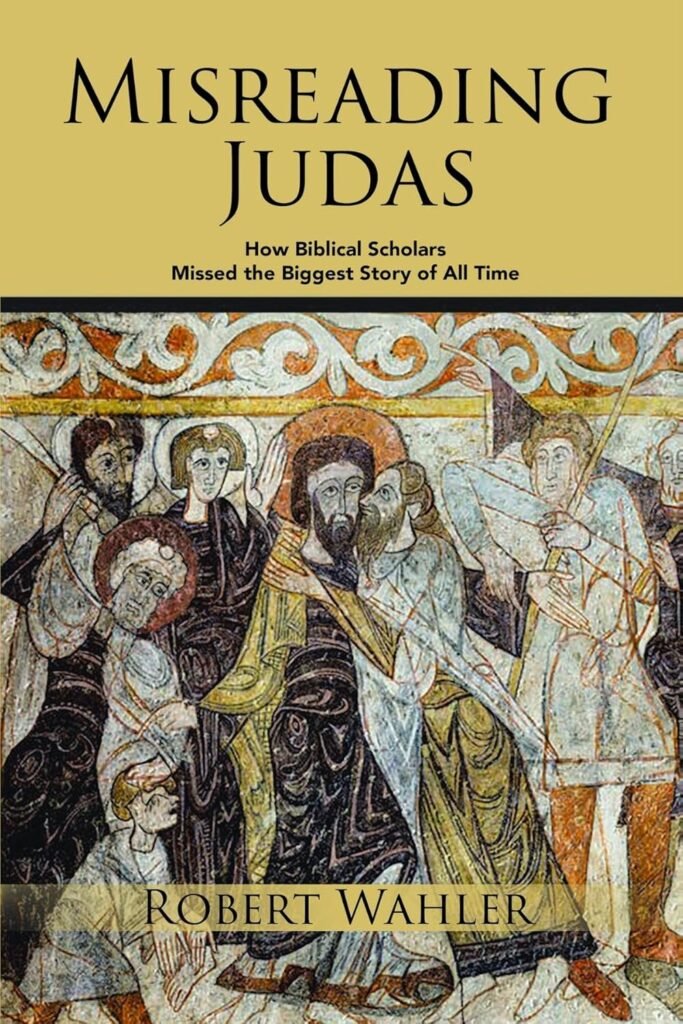
Misreading Judas
About this book
Unveiling the Mystery of the New Testament Gospels: A Gnostic Perspective
Archaeological discoveries have always been gateways to uncovering the secrets of our past. In recent developments, new findings have shed light on a controversial topic – the origins of the New Testament Gospels. Contrary to popular belief, these discoveries suggest that the Gospels may have been plagiarized from an ancient Gnostic text.
The Gnostic Influence:
The Gnostics, an ancient religious sect, were known for their esoteric teachings and mystical beliefs. The newly unearthed Gnostic text reveals a mastership succession narrative that bears striking similarities to the events depicted in the New Testament Gospels. It seems that the Gospel authors may have borrowed heavily from the Gnostic teachings, using them as a template for their own narrative.
The Betrayal of Christ:
One of the most intriguing aspects of the new discoveries is the revelation of a potential cover-up regarding the succession of James the Just. The Gnostics’ narrative suggests that James was meant to succeed as the leader of the early Christian community, but this was hidden and twisted by the Gospel authors. Instead, they portrayed Judas as the betrayer of Christ, diverting attention from the true succession narrative.
Unraveling the Truth:
These findings have sparked intense debate among scholars and theologians, challenging the traditional understanding of the New Testament Gospels. Could it be that the Gospel authors plagiarized the Gnostic text to create their version of the story? And what implications does this have for our understanding of early Christianity and the origins of the Gospels?
Looking Ahead:
As more research is conducted and further discoveries are made, we may soon have a clearer picture of the intricate web of influences that shaped the New Testament Gospels. The Gnostic perspective offers a fresh lens through which to view these ancient texts, inviting us to reconsider long-held beliefs and delve deeper into the mysteries of our religious history.
In conclusion, the recent archaeological discoveries pointing to the possible plagiarism of the New Testament Gospels from an ancient Gnostic text have opened up a new chapter in the study of early Christianity. As we continue to explore these connections, we may uncover even more secrets and untold stories that have remained hidden for centuries.
Book Review Summary
Misreading Judas” challenges conventional beliefs by presenting new archaeological evidence that suggests the New Testament Gospels may have been plagiarized. The book suggests that the Gnostics originally crafted a narrative of mastership succession that was later inverted and covered up by Bible authors to portray James the Just’s succession as the infamous Betrayal of Christ by Judas. This thought-provoking analysis sheds new light on biblical interpretation and the early Christian narrative.
Who will love this book?
Are you a fan of historical conspiracy theories and religious studies? Do you enjoy books that challenge conventional beliefs and explore the hidden truths behind traditional narratives? If so, “Misreading Judas” is the perfect read for you. This thought-provoking book delves into new archaeological discoveries that shed light on the origins of the New Testament Gospels and the betrayal of Christ by Judas.
Here are the readers who will love this book:
-
History buffs: If you have a passion for uncovering the mysteries of the past and exploring alternative interpretations of historical events, this book will captivate you with its fresh perspective on the betrayal of Christ.
-
Religious scholars: For those interested in religious studies and the evolution of ancient texts, “Misreading Judas” offers a fascinating exploration of how the Gnostics influenced the Bible authors and the implications of their teachings on the traditional narrative.
-
Conspiracy theorists: If you enjoy delving into secret societies, hidden agendas, and covert operations, this book will satisfy your appetite for uncovering the truth behind the myths and legends of the past.
-
Fans of Dan Brown’s “The Da Vinci Code” and Umberto Eco’s “Foucault’s Pendulum”: If you were captivated by the thrilling blend of history, mystery, and symbolism in these books, “Misreading Judas” will be right up your alley.
“Misreading Judas” is a must-read for anyone intrigued by the intersection of religion, history, and conspiracy theories. Get ready to challenge your beliefs and embark on a fascinating journey into the mysterious world of ancient texts and hidden truths.

